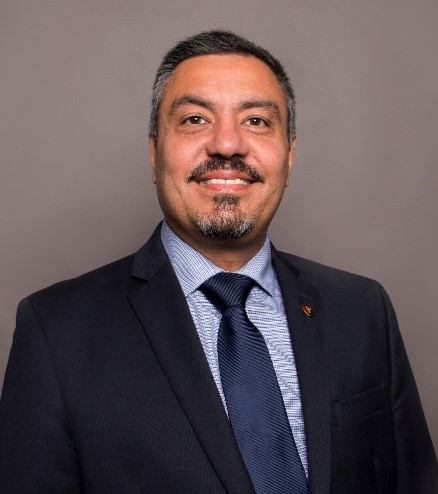Dr. Hamid Karbasi has been invited to participate in an international discussion in Frankfurt, Germany, around advanced technologies, recycling systems, strategies and sustainable materials solutions to reduce and manage the environmental impact of e-waste.

Dr. Hamid Karbasi, Conestoga’s NSERC Industrial Research Chair for Colleges in Advanced Recycling Technologies for Waste Electrical and Electronic Equipment, will present at an international e-waste conference in Frankfurt, Germany.
The E-waste World Conference & Expo — taking place November 14 and 15 — is a specialist two-day technical forum that will bring together more than 80 globally renowned experts from both ends of the electronics lifecycle to discuss and unveil solutions and strategies to alleviate the global e-waste crisis.
Karbasi, Conestoga’s NSERC Industrial Research Chair for Colleges in Advanced Recycling Technologies for Waste Electrical and Electronic Equipment (WEEE), will moderate a session focused on the driving forces behind a circular economy in electronics, and will sit on a panel of experts set to discuss maximizing the value of e-waste through advanced recovery innovations.
Since 2016, Karbasi has been working with faculty, students and industry partners to explore technology solutions and products that can be commercialized by local equipment manufacturers to increase e-waste treatment, recycling and landfill diversion rates.
“For decades, the manufacturing sector has benefited from advanced technologies without full consideration for environmental consequences,” said Karbasi. “The level of integrated automation and robotics in manufacturing is significant and billions of dollars are invested into the development of advanced technologies each year. There has been less attention for developing and transforming technology from a sustainability point of view, therefore, producing a considerable gap between the level of technological advancement within manufacturing and in recycling.”
Karbasi noted that WEEE has become the fastest growing sector in solid waste management, producing around 50 million tons of waste annually as the rapid growth of IoT devices and artificial intelligence (AI) technologies result in more outdated and discarded electronics. It is estimated that only 15 to 20 per cent of WEEE is recycled.
“Our research aims to address the shortcomings of existing technologies, as well as targeting innovative, cost-effective, and scalable solutions specifically related to the novel applications of robotics, machine learning and AI in de-manufacturing, materials sorting and modern warehousing,” Karbasi continued.
Karbasi’s applied research supports the potential for Canada to become a global leader in e-waste recycling with projects that include the development of working prototype systems to de-manufacture, sort and process computer hard drives, button cell batteries and black plastics; studies into the repurposing, remanufacturing and recycling of lithium-ion batteries used in electric vehicles; investigating the different technologies for improving the efficiency of sorting household batteries for recycling; and the robotic sorting of shredded waste electronics.
Conestoga Applied Research and Innovation brings together faculty expertise, student researchers and state-of-the-art technology to support specialized research in sectors of key economic growth. The college is ranked among Canada’s top 25 research colleges, supporting the needs of industry and community partners while providing students with opportunities to build real-world skills. In 2018, more than 3,600 students and close to 270 faculty and staff at Conestoga were engaged in applied research projects.
